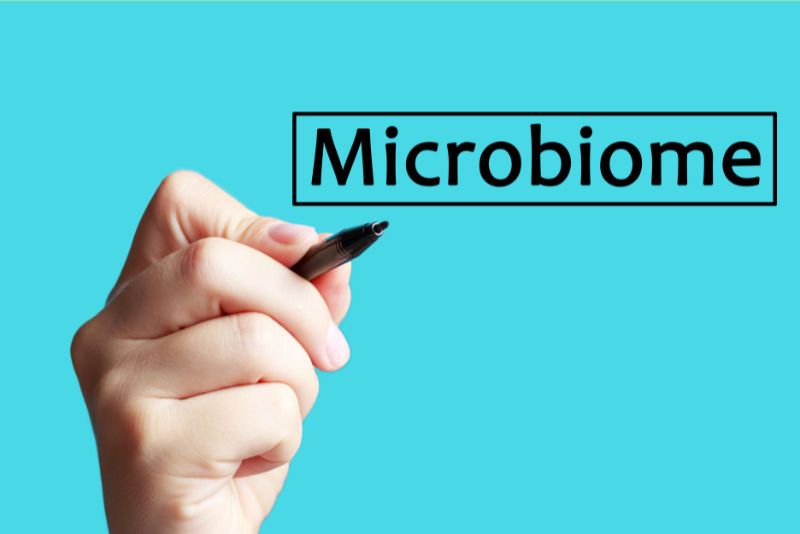Microbiome 101: What It Is, Why It Matters, and How to Support It Naturally
- Tara Scott
- Jul 31, 2025
- 3 min read
If you’re interested in health, chances are you’ve heard the term microbiome. But what is it really—and why is it so important?
At Enriched Being, we believe real health starts from within. And few systems inside the body are more influential than your microbiome—a living ecosystem that quietly shapes your digestion, immunity, energy, and even your mood.

🧬 What Is the Microbiome?
Your microbiome is the community of trillions of microbes—bacteria, fungi, and other microorganisms—that live in and on your body.
You actually have more microbial cells than human cells.
And far from being harmful, many of these microbes are essential for health.
They help to:
Digest food and absorb nutrients
Regulate inflammation and the immune system
Produce vitamins and neurotransmitters
Support metabolism, brain function, and skin health
🌍 Where Is the Microbiome?
We tend to focus on the gut, but the microbiome exists throughout the body:
Body Area | What It Does |
Gut | Breaks down fibre, regulates immunity, supports the gut-brain axis |
Skin | Acts as a protective barrier and supports wound healing |
Mouth | Supports oral health and the start of digestion |
Lungs | Influences respiratory immunity and inflammation |
Vagina | Maintains pH and protects against infections |
The gut microbiome is the most studied—and arguably the most influential—of them all.
🧠 Why the Microbiome Matters
🛡️ 1. Immune System Support
70–80% of your immune cells live in your gut. A balanced microbiome helps prevent both underreaction (infections) and overreaction (autoimmunity).
🧠 2. Mood & Mental Health
Your microbes produce neurotransmitters like serotonin and GABA. They influence mood, memory, and stress resilience through the gut-brain axis.
🔥 3. Inflammation & Disease Prevention
An imbalanced microbiome (called dysbiosis) is linked to chronic inflammation—often at the root of heart disease, diabetes, and neurodegeneration.
⚖️ 4. Metabolism & Weight
Certain gut microbes help manage blood sugar, hunger hormones, and fat storage.
🔬 What Does the Latest Research Say?
🧪 Fermented Foods Reduce Inflammation
A 2021 Stanford study showed that eating 6 servings of fermented foods daily increased microbial diversity and lowered inflammation.
This supports including fermented options like Big Shot—our cold-pressed, wild-fermented microgreen shot—as part of your daily routine.
🧪 Your Microbiome Can Change in Days
Microbial composition can shift in 3–5 days of changing your diet (Harvard, Nature, 2014).That means small, consistent actions make a real difference.
🧪 Social Interaction Builds Diversity
People who live together often share microbes—especially when they share meals.Time with loved ones, physical touch, pets, and being outdoors all contribute to healthier microbiomes.
💊 What About Antibiotics?
Antibiotics are sometimes necessary, but they wipe out good and bad bacteria alike.
A single course of antibiotics can impact the gut for 6 to 12 months, and some microbial strains may not fully recover.
That’s why post-antibiotic recovery matters—fermented foods, fibre, and fresh microgreens help repopulate and rebalance the gut.
🌱 6 Ways to Support Your Microbiome Naturally
✅ 1. Eat More Plants
Aim for 30+ different plant foods each week—fruits, veg, legumes, herbs, nuts, and seeds.
Bonus tip:Include microgreens like broccoli, red cabbage, radish, sunflower, or pea shoots.These are rich in polyphenols, prebiotic fibre, and antioxidants that feed beneficial gut bacteria.
✅ 2. Add Fermented Foods
Sauerkraut, kefir, kimchi, miso—and Big Shot, our functional fermented microgreen shot—support microbial health naturally.
✅ 3. Increase Prebiotic Fibre
Feed your good bacteria with:
Garlic, onions, leeks
Asparagus, lentils, oats
Cooked and cooled potatoes (resistant starch)
✅ 4. Avoid What Harms Your Gut
Limit:
Ultra-processed foods
Artificial sweeteners
Alcohol
Emulsifiers and unnecessary antibiotics
✅ 5. Connect with Nature & People
Touch soil. Walk barefoot. Garden. Hug your people. Eat together. All of this contributes to microbial richness and resilience.
✅ 6. Rebuild After Antibiotics
Consistency is key: fermented foods + fresh plant fibre + rest = real recovery.
🌿 Why We Champion Microgreens
At Enriched Being, we’ve built everything around the power of microgreens.
Grown cleanly and naturally
Harvested fresh for maximum impact
Fermented to create living, functional products
Nutrient-dense and full of gut-supportive compounds
They're not just a garnish. They’re one of nature’s most potent, adaptable, and healing foods.
💡 Final Thoughts
Your microbiome is an intelligent, responsive ecosystem.Feed it well, and it supports nearly every part of your health—from immunity to energy to longevity.
And the best part?It responds quickly.
Start small.Start fresh.And start feeling the difference.



